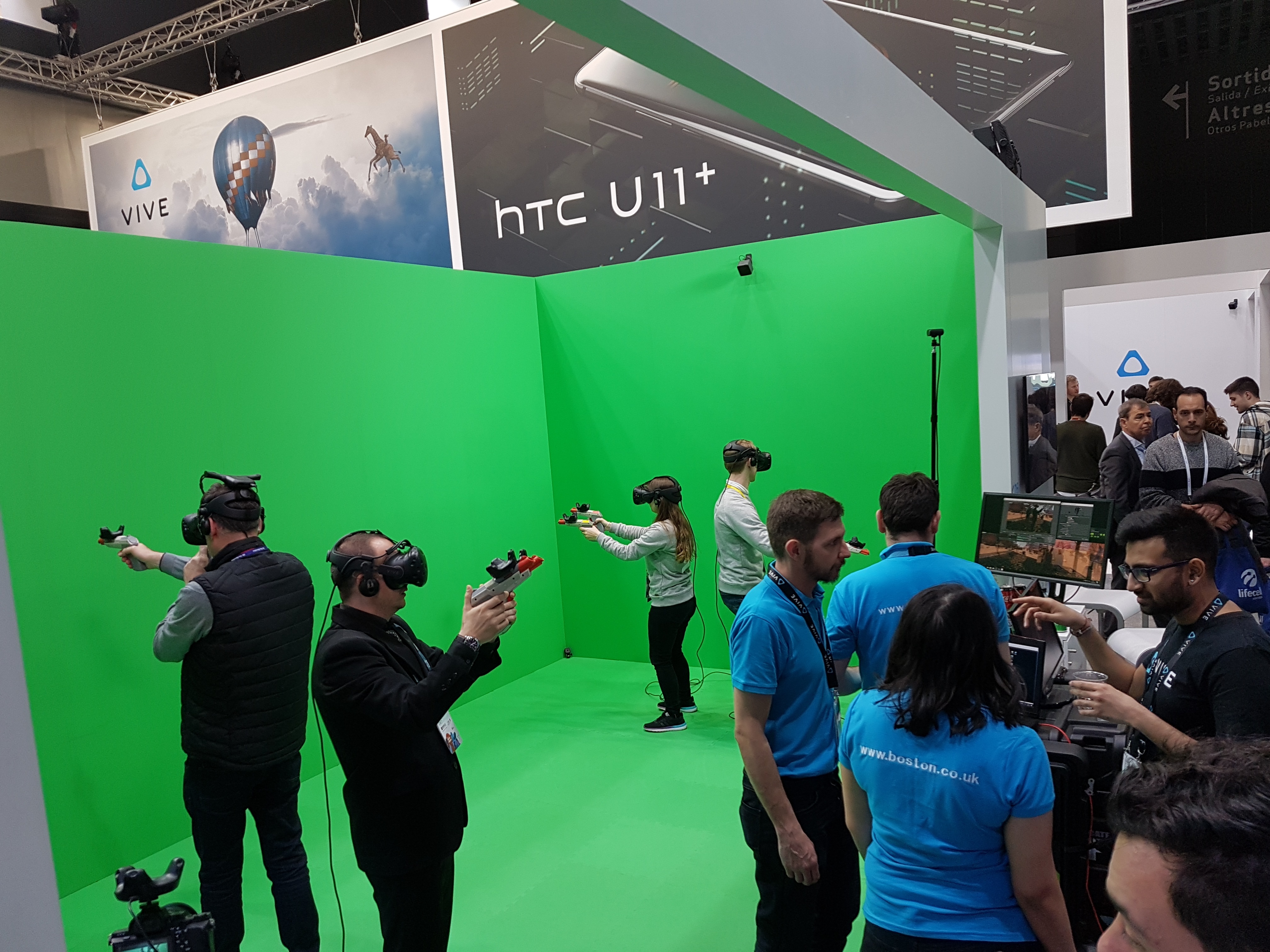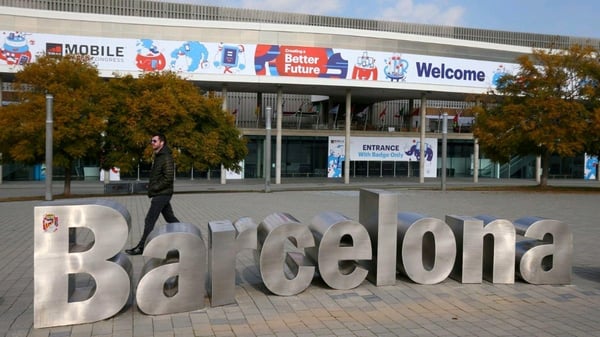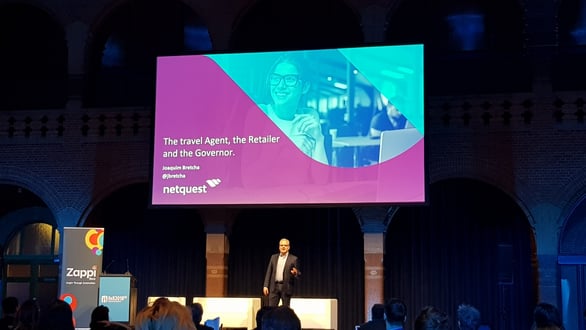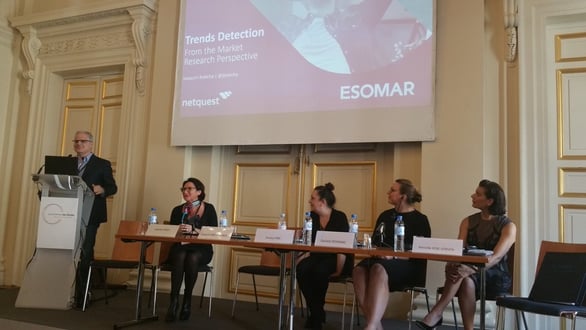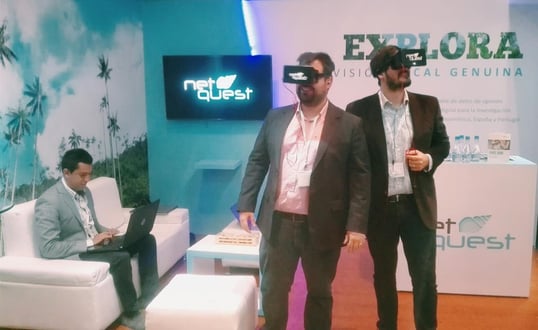Barcelona hosted the annual Mobile World Conference (MWC2018) during the last week of February. For one week, the Catalan city became a showroom of the latest technologies in mobility. What used to be the place for big telephone manufacturers to release their latest features is now a platform for mobile data; data in all its terms: generation, collection, transmission, analysis and implementation.
About 110k people around the globe attended this year’s event. Making the MWC the perfect opportunity for Netquest, as we were founded and are headquartered in Barcelona, to reconnect and meet with colleagues, find out about the latest technology trends and showcase our services and products to companies outside the market research industry.
2018 Looks a Lot Like 2025
Before diving deeper into how the MWC felt like a sci-fi event, I want to share with you some research I did before attending. First, I watched Jodie Foster’s Black Mirror episode “Arkangel”. Second, I read the 2013 McKinsey’s “Disruptive technologies: Advances that will transform life, business, and the global economy” report.
Below, are McKinsey’s predictions for 2025, which were released in 2013. According to this report, in 2025 the most impactful technologies that will determine our societies are:
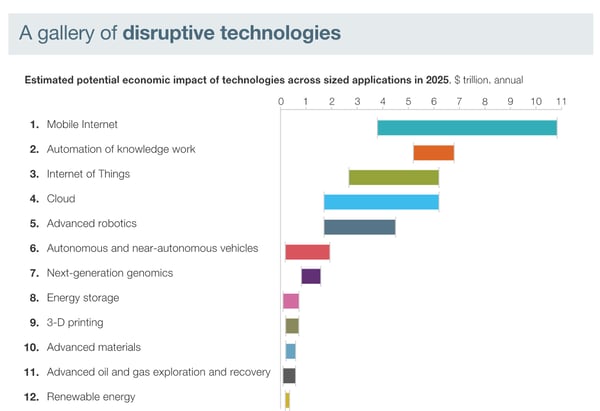
If we look at social media conversations held during the MWC, which were analysed by Brandwatch, we can see the topics the attendees discussed mirror McKinsey’s predictions. But, keep in mind, it’s 2018 not 2025. Looks like we may be moving along faster than anticipated.
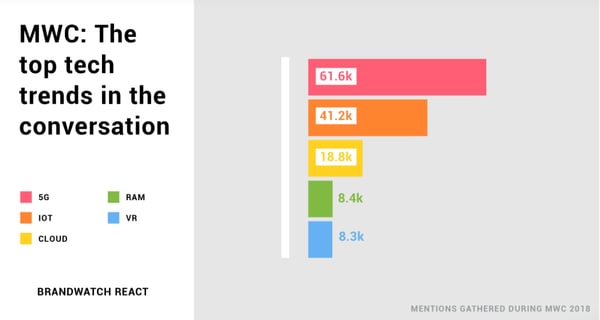
The Star of the Show
The clear star of the MWC was the new wireless technology, 5G. The capabilities of 5G will bring much faster speeds along with lower latency. This will definitely open the flood gates for expanding possibilities for the Internet of Things (IoT), smart homes, 3D, virtual reality and much more. With this 5G announcement, IoT will start to be less of a buzzword and more of a reality. This holds true especially with researchers, with IoT an immense new pond of datasets will provide a more holistic view of consumer behavior.
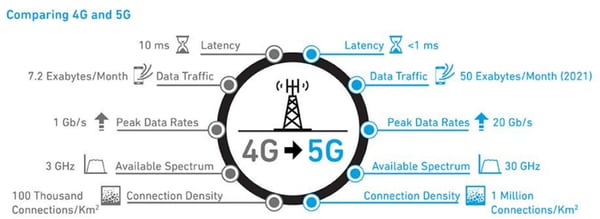
Driving Full Speed into the Digital Age
While experiencing the entire MWC, it was clear that McKinsey’s list was well represented. In essence the MWC is all about data. It’s a feast of information about data collection devices and sensors, and this year the automobile seemed to be discussed as the most impactful device.
The automobile industry may be the best example of the industrial revolution 4.0. The industry is experiencing so many exciting shifts: a fueling change (electric cars), an ownership paradigm change (rideshare), a driving/experience revolution (autonomous cars), and more. The automobile is becoming a device purely connected to the passenger, which means more data like we’ve never seen before.
The automobile industry is leaving the mechanical era behind and is embracing digital age. As a result, automobiles have and will continue to become immense data generators. Data generated and treated by artificial intelligence and machine learning that will entirely change the experience of mobility.
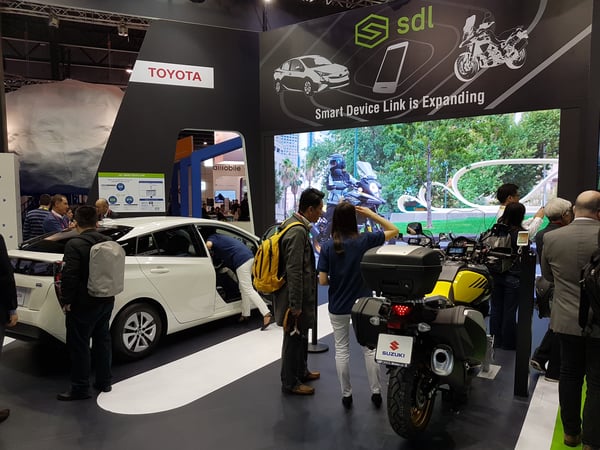
The Road Ahead for Market Researchers
Transformations of all kinds were exposed at the Congress: From the simplest integration of the smartphone with the car, to the artificial intelligence applied to the autonomous car, to the new mobility solutions combined with air drones.
I believe this is a new opportunity for market researchers. Automobile companies are at their most prominent strategic crossroad since the 1970s petrol crisis. From a market research standpoint, all these new and wide datasets offer a new context to understand consumers and therefore, open new business opportunities. If market research wants to stay relevant in this sector, we must consider our capabilities with the automobile industry.
MR and VR: A Marriage
The other predominant technology shown during the Congress was Virtual Reality (VR). Different manufacturers and service providers discussed this hot topic all throughout the event. To be honest, I have always been a bit sceptical with VR. By the time MWC was over, I was wowed by VR!
There is no question that VR is the perfect match for gaming. But, what about market research? I can recall the good paper presented by Narith Pahn, VP Ipsos US at the Esomar Big Data Conference 2017 in Brooklyn. It was an interesting comparison between how a car clinic is traditionally run versus the one implemented with VR. Astonishingly, results were quite balanced. What made me give credibility to it was that Narith openly shared the current blind spots of VR. This methodology can certainly be very useful for market research purposes beyond car clinics.
Any event that requires a visual context to observe people’s decisions is capable of being conducted with VR: in-store shopping decisions, fashion choices, customer experience, the list goes on.
One week later, I was actually fortunate enough to see virtual reality applied to market research at the Kantar Solutions booth during the Insight Show in London. My good colleague Juergen Van Leeuwen showed me the real application in the retail arena and gave me some context of its applications:
“The headset is just a part of it; the most visible but not the most relevant. The most relevant is what happens on the big screen, when we move from a personal to a group experience. Manufacturers and retailers can work on the optimization of a category counting with the visual of VR combined with the complete information of the SKUs and category’s performance (retailer’s data, consumer panel, retail panel, ad-hoc…)”
Artificial Intelligence (AI) and Machine Learning (ML) were some of the underlying elements in all the exhibited solutions for market research. From generic applications to very particular scenarios such as in the field of healthcare and wellbeing to data analysis to geolocation.
Other Notes
To my positive surprise, Privacy, the GDPR, ID securitisation were very present as well as transactions security solutions (Blockchain already showing its footprint that for sure will be incremental). As market researchers, our primary element is the data obtained by our interaction with people. It is in our interest to back and promote a safeguarded digital environment.
In Essence
The Mobile World Congress is a must-attend show. The latest of the latest is exhibited. What is certain is that the MWC is no longer only about devices. It is about Data. Data will be the propeller of the engine of the new economy. This data will be generated from devices and experiences that are far from the traditional market research scope. I left the exhibition hall with this question: how are market research companies getting ready for this data revolution?
